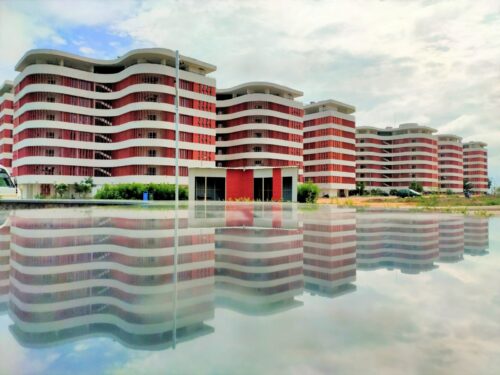Rama Krishna Sangem
IIT Hyderabad (IITH) has joined a global consortium led by Swinburne University of Technology (SUT), Australia, to advance sustainable and zero-carbon silicon refining technologies, aimed at recycling end-of-life solar panels. The initiative, known as the Si-Zero Research Program (Silicon Zero Emission Recycling, Refining and Production) brings together leading institutions from India, Australia, Indonesia, and the USA to develop green, circular approaches for recovering high-purity silicon — a critical material for the renewable energy sector.
This AUD $3 million project (titled Zero-Carbon and Circular Solar PV Recycling) receives funding from the Australian Government, and brings together leading institutions from India, Australia, Indonesia, and the USA, said a press release.
With rising solar installations worldwide and an expected surge in end-of-life panels, this initiative marks a crucial step toward sustainable silicon recovery, resource circularity, and a cleaner energy future.
Representing India in this prestigious consortium, IITH, with the support of industry partner Greenko, will play a pivotal role in developing and advancing refining methods such as Electro Slag Refining (ESR) and Electrochemical Refining for molten silicon. IITH will establish a dedicated ESR facility for silicon refining and lead a systematic experimental and modelling-based approach to enhance process efficiency, purity, and scalability.
Make in India clean energy goals
This effort is aligned with India’s “Make in India,” clean energy, and circular economy goals, aiming to build domestic capacity in high-purity silicon production while reducing dependence on imports and minimizing solar waste.
Prof. B S Murty, Director, IIT Hyderabad, said: “This collaboration is a strong example of how international partnerships can accelerate innovation for sustainable technologies. IITH is proud to contribute its materials and process expertise to enable clean, circular, and globally relevant silicon refining solutions. We will implement this initiative for the existing solar plant of power generation capacity 0.95 MW and the ongoing installation of the solar plant of power generation capacity 3.5 MW in our Institute as a part of a practical demonstration towards amplifying the efforts of the Sustainability committee and the Net Zero policy of our Institute,” said the release.


